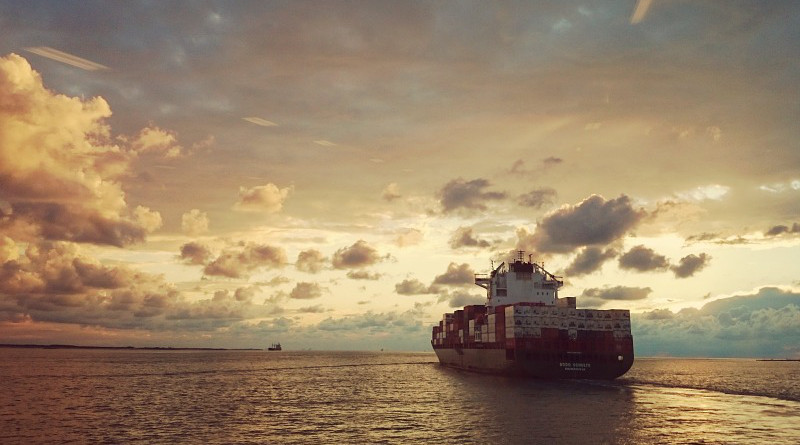NGOS Call EU’s Intent To Export Toxic Ships To Developing Countries Illegal And Contrary To Aims Of Green Deal
Leading environmental organisations, active in the pursuit of preventing the environmental injustice caused by the dumping of hazardous waste, warn that the European Union’s legislation allowing the export of toxic ships to developing countries violates Member States’ obligations under the Basel Convention and is in contradiction with the EU’s new strategic economic and environmental policy initiatives.
In a new report entitled Contradiction in Terms: European Union must align its ship exports with International Law and Green Deal Policies, the Basel Action Network, Greenpeace, European Environmental Bureau and NGO Shipbreaking Platform all call upon the EU to take urgent action to reform both the Waste Shipment Regulation and the Ship Recycling Regulation to ensure they are legally consistent with the international Basel Convention.
They note with concern that proposals have been made for the EU to enter into a special bilateral agreement with certain shipbreaking states (e.g. India) as a supposed legitimate means to circumvent the Basel Convention’s Ban Amendment, which entered into global force last December [1].
Bolstered by a new analysis by the Center for International Environmental Law (CIEL) [2], the report explains why that is not acceptable both from a legal standpoint and as a matter of policy.
“Put simply, the EU procedure of filling out paperwork and permitting toxic ships to go to the beaches of South Asia for the purposes of their disposal/recycling can never be an equivalent level of control and protection as a rule that bans such export”, says Jim Puckett, Executive Director of the Basel Action Network (BAN).
“Now that the Ban Amendment is in force, it is binding international law. Shipbreaking yards in developing countries such as India, Pakistan and Bangladesh can therefore not be placed on the EU’s list of approved ship recycling destinations”.
In light of the new European Green Deal – and at a time when 1) EU waste law is being recast to ‘facilitate preparing for re-use and recycling of waste in the EU’ and ‘restrict exports of waste that have harmful environmental and health impacts in third countries; 2) the EU’s Circular Economy Action Plan calls for ensuring that the EU does not export its waste challenges to third countries; and 3) the recently published Foresight 2020 report identifies the need for greater resilience in providing more green jobs in the EU – it seems especially incoherent for the EU to rely on faulty legal argumentation that would defeat the intent and purpose of the Ban Amendment while undermining the EU’s strategic economic and environmental policy initiatives.
“Such action will send a signal to the rest of the world that the EU is not serious about a responsible circular economy and international law. By allowing the breaking of European vessels in the Global South, Europe is not only exporting hazardous waste and threatening people’s health in developing countries, but also contradicting its own ambition to boost the domestic supply of secondary raw materials – as set out in its circular economy action plan,” says Stéphane Arditi, Circular Economy Policy Manager at the European Environmental Bureau (EEB). “EU leaders must focus on reprocessing, reusing and recycling valuable materials, particularly steel, within Europe.”
The NGOs call on the EU to seize the opportunity to boost safe and clean ship recycling in Europe, as well as to promote the design and building of toxic-free vessels and to push for ‘zero-emissions steel’ initiatives. [3] Such actions would enable Europe to offer proper recovery solutions for ships from all over the world.
“We fear that the EU is just fine with human rights, environmental treaties and a ‘green deal’ until it impacts the bottom line of powerful industrial interests”, states Ingvild Jenssen, Director of the NGO Shipbreaking Platform.
“Instead of inventing exceptions to international law, we expect the EU to support its recycling sector and safeguard the environmental justice principles that it championed when supporting the Basel Ban Amendment – and now has put at the heart of its new Green Deal”.
Notes:
[1] The Ban Amendment to the Basel Convention, championed early on by the EU and now enshrined in international waste law, bans hazardous wastes of all kinds from being exported from developed to developing countries. The Basel Convention has already ruled that operational ships can be considered as hazardous wastes due to the many toxics embedded within their structure. Yet, current EU law allows EU flagged vessels to be exported to any destination on an EU approved ship recycling facility list, regardless of whether it is a developing country or not.
[2] The CIEL analysis explains that the Basel Convention does not allow reservations or exceptions, and only allows special separate agreements if they provide an “equivalent level of control.”
[3] See Material Economics’ report Industrial Transformation 2050.

